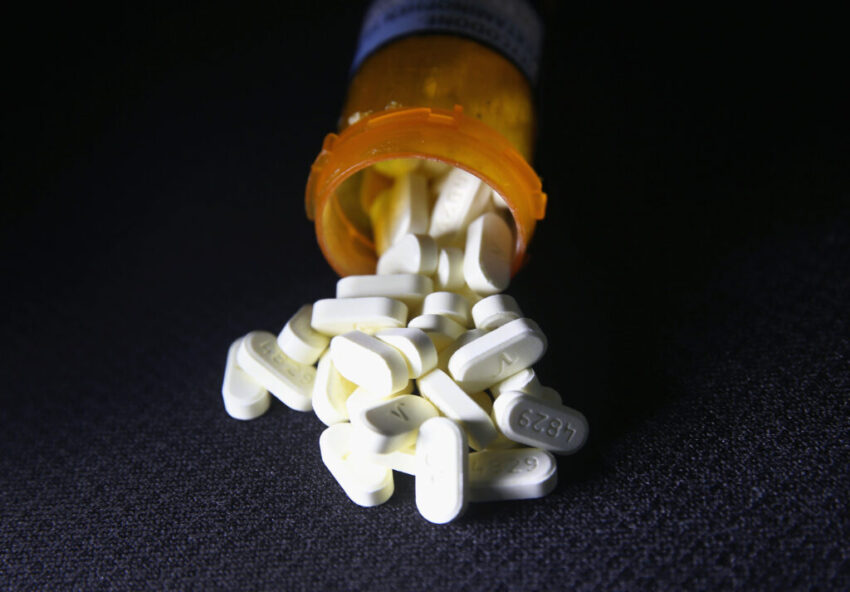Virginia continues to seek accountability and healing as part of a growing list of legal settlements with opioid manufacturers. (Photo by John Moore/Getty Images)
In another major legal win in the fight against the opioid crisis, Virginia Attorney General Jason Miyares announced Thursday that the commonwealth could receive up to $16.4 million as part of a sweeping $720 million multi-state settlement with eight generic drug manufacturers accused of flooding communities with addictive painkillers.
“Years ago, pharmaceutical companies exploited Virginians, treating them like test subjects while pushing dangerous, addictive drugs into our communities while lining their pockets,” Miyares said in a statement.
“Though no settlement can erase the heartbreak and lives lost to the opioid crisis, I’m proud of my office for fighting to secure over $16 million to help Virginians heal, support recovery, and hold these companies accountable for the devastation they profited from.”
The settlement includes Mylan (now part of Viatris), Hikma, Amneal, Apotex, Indivior, Sun, Alvogen, and Zydus — companies that will pay a combined total of $720 million over various timeframes.
Mylan will contribute the largest share, paying more than $284 million over nine years. Other payments include $95 million from Hikma, $71 million from Amneal, and $63 million from Apotex. Alvogen, Zydus and Apotex will make one-time payments, while others will pay over several years.
Beyond the money, the agreement imposes new restrictions. Seven of the eight companies are now prohibited from marketing or promoting opioids, barred from producing pills containing more than 40 milligrams of oxycodone and required to implement systems to detect and report suspicious orders.
Indivior, known for its medications used in opioid addiction treatment, agreed to halt production and sales of opioid products for 10 years, though it can continue selling treatments for opioid use disorder.
Virginia helped negotiate the deal alongside attorneys general from California, Colorado, Illinois, New York, North Carolina, Oregon, Tennessee, and Utah.
The announcement marks another step in Virginia’s broader legal effort to hold opioid manufacturers accountable — efforts that have now resulted in over $1.1 billion in secured settlements for the state.
Just last month, Miyares announced Virginia’s role in a separate, high-profile $7.4 billion national settlement with Purdue Pharma and the Sackler family that would dissolve the family’s ownership of the company and permanently bar them from marketing opioids in the United States.
Virginia stands to receive up to $103.8 million from the Purdue deal, with the majority of the funds arriving in the first three years. The money will be channeled into prevention, treatment, and long-term recovery programs through the state’s Opioid Abatement Authority.
“The Sacklers spent years fueling an epidemic that shattered families, wrecked communities, and cost hundreds of thousands of American lives,” Miyares said in announcing the Purdue deal.
“Though no amount of money will ever bring back those we’ve lost or undo the incomprehensible level of harm caused, these settlement funds will be invested in treatment, prevention, and recovery efforts across Virginia, helping our communities heal and saving lives.”
The impact of the opioid crisis in Virginia has been especially severe.
A 2021 analysis by Virginia Commonwealth University and the Virginia Department of Health found nearly 150,000 Virginians living with opioid use disorder. At least six Virginians died each day, on average, from opioid overdoses that year.
By 2022, fentanyl — a synthetic opioid up to 50 times stronger than heroin — was responsible for more than 1,900 deaths in Virginia, more than double the toll from a decade earlier.
However, early signs of progress are emerging. Preliminary data from the Centers for Disease Control and Prevention show a 44% drop in fentanyl-related deaths in Virginia in 2024, marking the second-largest such decline in the country.
YOU MAKE OUR WORK POSSIBLE.
Click this link for the original source of this article.
Author: Markus Schmidt
This content is courtesy of, and owned and copyrighted by, https://www.virginiamercury.com and its author. This content is made available by use of the public RSS feed offered by the host site and is used for educational purposes only. If you are the author or represent the host site and would like this content removed now and in the future, please contact USSANews.com using the email address in the Contact page found in the website menu.








